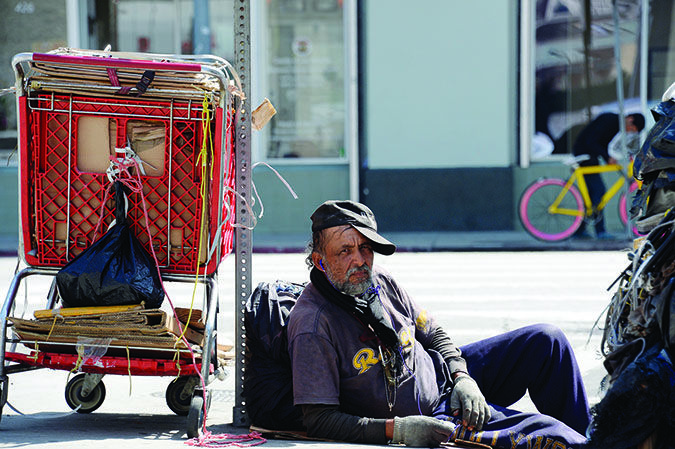As an Angeleno who lives alone and works alone, I’ve often wondered what might happen if I had, say, a stroke out on the street.
Enter Jan Crary, who for 28 years has worked as a licensed clinical social worker at L.A. County+USC Medical Center.
“Found down,” it turns out, is the medical term for people who are discovered unconscious or otherwise unable to identify themselves.
Part of Jan’s job over the years has been to identify them.
“The paramedics transport the patient to the hospital. Our work is investigative at this point.”
They look through the patient’s personal belongings to see if there is any identifying information. They try to get as much information from the people who brought the patient to the hospital. The location of the pickup can be helpful.
“We presume the patient would want a loved one to know where they are. We also need someone who cares for the patient and who might know the patient’s wishes if the doctors need to make medical decisions without the patient’s participation.”
One time a patient was found in front of an apartment complex. Jan Google street-viewed the address and in front of the building spotted a “For Rent” sign with the manager’s phone number. She called the manager and discovered the patient’s father lived there.
Another patient was found down in front of a McDonald’s. Jan called the McDonald’s and the worker who answered knew the man because he was a frequent patron.
“We’re very respectful of patient confidentiality. But human interest is amazing. When you explain that we have a person who was brought into our hospital and we’re trying to find someone who knows them, people are often very willing to help. We’re not able to give information on the patient’s condition in return, but they understand that.”
The social workers can tell a lot from the level of hygiene and the condition of nails, hair and clothing. Many patients are very poor, but not all. LAC+USC Medical Center boasts a Level 1 trauma center — the county healthcare system provides a good percent of all trauma care, county-wide — so other patients can be in business attire.
“I worked for some time in trauma ICU. I’d often be the one to notify the person that we had their loved one in the hospital. That’s the scary phone call that none of us ever wants to receive, and no one wants to make.”
“At first it seemed like such a daunting responsibility, but then I began to see it as a real honor. I would support the loved one, explain in a general way the circumstance under which the patient arrived, and do things as concrete as give driving directions to the hospital.”
Some people have a great support network. Many do not. In cases where the patient has no ID, no telephone number and no friend, the health care team acts as surrogate decision-maker in doing what’s medically and humanly appropriate, given the medical circumstances.
“Much of what we do in those situations is to be there for the family; to be present to the patient and their loved ones. Our presence creates a safe space for them to deal with their strong emotional reactions. I’ve had so many patients who didn’t speak the language. Until the interpreter arrived, all I had for them was a look, a touch — and they’d feel it. With their own look, their own touch, they’d say, Thank you so much.
“That is so powerful. So human.”
A lot of what they do, too, is support the staff. “When people make a health care decision we don’t feel is healthy, that can be difficult. We can dispense information. We can discuss the consequences of, say, going out on the street to start using cocaine again. But if the person isn’t interested in getting clean, that’s his or her decision. This concept is called patient self-determination, and we have to respect it. We don’t try to force our decision on our patients.
“Who are we to judge?”
Some patients repeatedly cycle through: the homeless, the mentally ill, the addicted. “We’re making huge strides in how to case-manage these people. Ever more available, for example, is permanent supportive housing for people who are chronically homeless. If you give a person a stable environment, their health is going to improve. They’re going to utilize fewer medical resources. This is thanks to our Department of Health Services higher-ups getting these programs off the ground.
“It’s so exciting. It’s wonderful. Getting to be part of someone’s life at such a vulnerable, challenging time is a profound privilege.”
For years, I tell Jan, I’ve carried in my wallet a little piece of paper saying, in effect, “If I’m about to die, please get me a Catholic priest to give me the last rites.”
Would that do any good?
“Absolutely,” she assures me. “The entire staff at County+USC Medical Center does everything they can to respect the patient’s principles, beliefs and wishes.”
“I feel fortunate to serve in a highly-skilled profession with the noble goal of helping those without a voice.”

